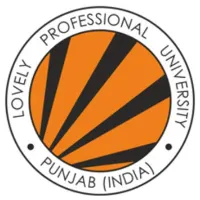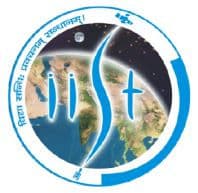Latest Applications Open 2024:
The LPU NEST (Lovely Professional University) is approaching the NEST (National Entrance and Scholarship Test) Entrance exam for the candidates seeking admission to B.Tech and MBA courses. There is a large number of candidates who are taking admission to complete their engineering and B.Tech courses every year.
The NEST is the university-level examination conducted for the candidate. The NEST must provide the best opportunity for the candidate through various courses, and most of the applicants register at Lovely Professional University for the NEST Entrance exam.
It considers the Government entrance exam and the Private entrance exam. Those applicants who want to know the complete information about LPU NEST can view this article to get details.
LPU NEST 2025 Syllabus
The syllabus of LPU NEST will consist of the syllabus of class 11 and class 12. The entrance examination of LPU NEST will be declared in April 2025, so candidates must carefully read and remember the syllabus topics and points before the examination.
Those candidates will do better preparation for the exam by reading the syllabus; they will perform well in this entrance exam.
The LPU NEST Syllabus comprises the Chemistry, Physics, Mathematics, Biology, and English subjects for candidates.
Chemistry Syllabus
Unit 1 – Atomic Structure, States of Matter & Thermodynamics
- Some basic concepts in chemistry
- States of Matter
- Gaseous State
- Liquid State
- Solid State
- Atomic structure
- Chemical bonding and molecular structure
- Covalent Bonding
- Quantum mechanical approach to covalent bonding
- Molecular Orbital Theory
- Chemical thermodynamics
- The first law of thermodynamics
- The second law of thermodynamics
Unit 2 – Solutions, Chemical Kinetics & Surface Chemistry
- Solutions
- Equilibrium
- Equilibria involving physical processes
- Equilibria involving chemical processes
- Ionic equilibrium
- Redox reactions and Electrochemistry
- Electrochemical cells
- Chemical Kinetics
- Surface chemistry
- Colloidal State
Unit 3 – Hydrogen & s – Block Element
- Classification of elements and periodicity in properties
- General principles and processes of isolation of metals
- Hydrogen
- S – Block elements (alkali and alkaline earth metals) Group – 1 and 2 Elements
Unit 4 – p, d & f Block Elements and Environmental Chemistry
- P – Block elements
- Group – 13 to Group – 18 Elements
- Group – 13
- Group – 14
- Group – 15
- Group – 16
- Group – 17
- Group – 18
- D – and f – Block elements
- Inner Transition Elements
- Coordination Compounds
- Environmental chemistry
- Tropospheric pollutants – Gaseous pollutants
- Stratospheric pollution
Unit 5 – Basic Concepts of Organic Chemistry
- Purification and characterization of organic compounds: Purification
- Qualitative analysis
- Quantitative analysis (Basic Principles only)
- Some basic principles of organic chemistry
- Nomenclature (Trivial and IUPAC) Covalent bond fission
- Electronic displacement in a covalent bond
- Common types of organic reactions
- Alkanes
- Alkenes
- Alkynes
- Aromatic hydrocarbons
- Organic compounds containing halogens
Unit 6 – Oxygen, Nitrogen, Polymers & Biomolecules
- Organic compounds containing Oxygen
- Alcohols
- Phenols
- Ethers
- Aldehyde and Ketones
- Carboxylic acids
- Organic compounds containing Nitrogen
- Amines
- Diazonium Salts
- Polymers
- Biomolecules
- Carbohydrates
- Proteins
- Vitamins
- Nucleic acids
- Chemistry in everyday life
- Chemicals in food
- Cleansing agents
Physics Syllabus
Unit 1 – Motion
- Laws of Motion
- Work, energy, and power
- Rotational motion
Unit 2 – Kinematics, Gravitation & Oscillations
- Physics and measurement
- Kinematics
- Gravitation
- Oscillations and waves
Unit 3 – Thermal Physics
- Properties of solids and liquids
- Thermodynamics
- Kinetic theory of gases
Unit 4 – Electricity & Magnetism
- Electrostatics
- Current electricity
- Magnetic Effects of current and Magnetism
Unit 5 – Atomic Structure & Optics
- Atoms and nuclei
- Dual nature of matter and radiation
- Optics
- Wave optics unit
Unit 6 – Electrical & Electronics
- Electromagnetic induction and alternating currents
- Electromagnetic waves
- Electronic devices
Mathematics Syllabus
Unit 1 – Algebra
- Sets, relations, and functions
- Complex numbers and quadratic equations
- Sequences and series
Unit 2 – Matrices, Vectors & Reasoning
- Matrices & Determinants
- Vector algebra
- Mathematical reasoning
Unit 3 – Permutation-Combinations & Binomial Theorem
- Permutations and Combinations
- Mathematical induction
- Binomial theorem and its simple applications
Unit 4 – Limit, Integration & Differentiation
- Limit, continuity, and differentiability
Unit 5 – Geometry
- Coordinate geometry
- Straight lines
- Circles, conic sections
- Three Dimensional Geometry
Unit 6 – Probability & Trigonometry
- Statistics and probability
- Probability
- Trigonometry
Biology Syllabus
Unit 1 – Diversity & Structural Organization
- Five kingdom classification
- Structural Organization in Animals and Plants
- Cell Structure and Function
- Cell division
Unit 2 – Plant Physiology
- Transport in plants
- Mineral nutrition
- Photosynthesis
- Respiration
- Plant growth and development
Unit 3 – Human Physiology
- Digestion and absorption
- Breathing and Respiration
- Body fluids and circulation
- Excretory Products and their elimination
- Locomotion and Movement
- Neural control and coordination
- Chemical coordination and regulation
Unit 4 – Reproduction, Genetics, and Evolution
- Reproduction in organisms
- Sexual reproduction in flowering plants
- Human Reproduction
- Reproductive health
- Genetics and Evolution
- Molecular Basis of Inheritance
- Evolution
Unit 5 – Biology, Biotechnology, and Human Welfare
- Health and Disease
- Improvement in food production
- Microbes in Human Welfare
- Biotechnology and Its Applications
- Application of Biotechnology in Health and Agriculture
Unit 6 – Ecology and Environment
- Organisms and environment
- Ecosystem
- Biodiversity and its conservation
- Environmental issues
English Syllabus
Grammar
Parts of speech – Noun, Pronoun, Adjective, Adverb, Verb, Preposition, Conjunction Interjection; Tenses – Present, Past, and Future Tense in Active and Passive Form; Modal Verbs – Can, Could, May, Might, Should, Will, Would.
Associative Language Skills
Vocabulary – Antonyms, Synonyms, One-word substitution, Word Analogies, Idioms, and Phrases; Common Errors – Sentence Correction and Error Finding Exercises; Comprehension Passages – Closed and Open paragraphs, Collocation, identifying key ideas or theme.
If you have any queries regarding the LPU NEST 2025 Syllabus, you can ask your query and leave comments below.

As a dedicated Biology Science graduate, I’m passionate about sharing the latest updates in national and state entrance exams through my blog. I aim to keep aspiring students informed about exam trends, important dates, and changes in syllabi. With a keen interest in education, I strive to offer valuable insights for students navigating the competitive landscape of entrance examinations and admission tests. Stay updated with me.


